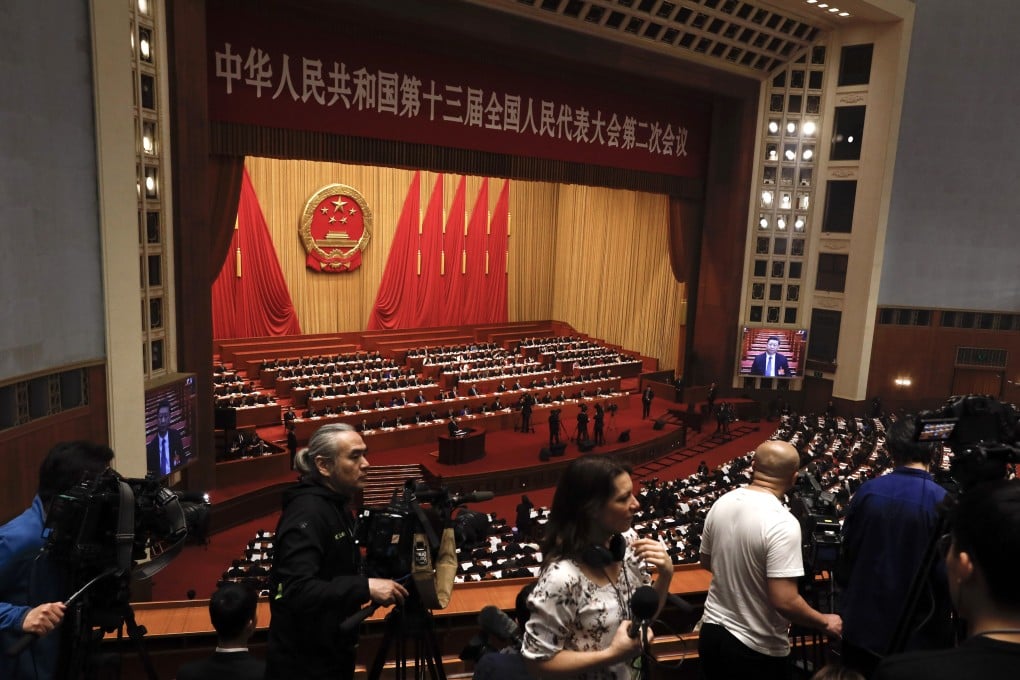China lowers 2019 GDP growth target to 6-6.5 per cent range
- Gross domestic product growth target released on Tuesday morning in Premier Li Keqiang’s annual report to the National People’s Congress
- Target down from ‘about 6.5 per cent’ set for last year due to US-China trade war, an already high debt level and financing bottlenecks for private enterprises

Beijing has set a lower economic growth target for this year and will step up fiscal measures to stabilise growth, Premier Li Keqiang said in his government work report released on Tuesday.
The government set a growth target range of 6 to 6.5 per cent for this year, down from the target of “about 6.5 per cent” set for last year, after factoring in a variety of headwinds, including the trade war with the United States, an already high debt level and financing bottlenecks for private enterprises.
To achieve its aim of doubling the size of the economy in the decade from 2010 to 2020, China must post growth of 6.2 per cent this year, economists at Morgan Stanley estimated.
To achieve its growth target, the government would continue to pursue a “proactive” fiscal policy “with greater intensity and enhance its performance,” Li said, according to an official English-language copy of this speech.
Overall, government expenditure will rise to over 23 trillion yuan (US$3.4 billion), up 6.5 per cent from the previous year.
The government will continue its “prudent” monetary policy, easing or tightening “to the right degree,” Li said.
Increases in M2 money supply should be in line with nominal gross domestic product growth.
Li again denied that the People’s Bank of China, the country’s central bank, would engage in a massive stimulus campaign to boost growth.